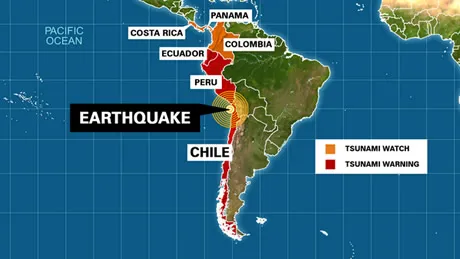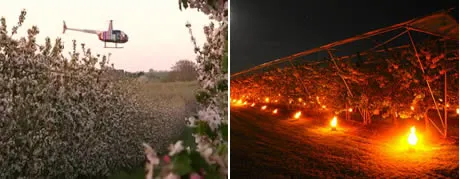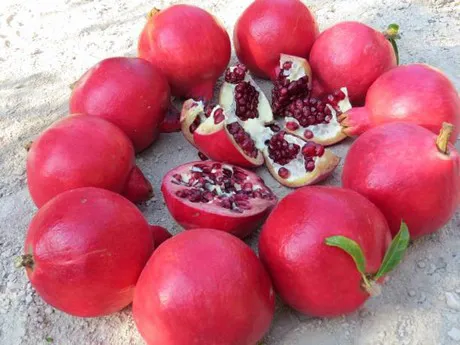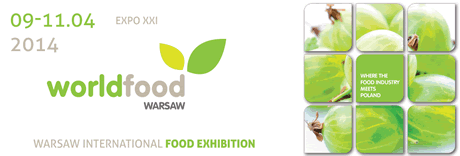
A tsunami warning was issued by the Pacific Tsunami Warning Centre for the entire west coast of Latin America and part of Central America. Later it was also withdrawn for Peru and Chile. Several aftershocks occurred with a magnitude of 5.0 on the Richter scale.
The rumblings from Eastern Europe continued this month when Russia threatened Kiev with limits on agrarian trade. Dmitri Medvedev, the Russian Prime Minister, threatened the Ukraine with "serious sanctions" in the agrarian trade if they were to leave the Commonwealth of Independent States (CIS) or sign an agreement of union with the EU.
Russia also said it may ban the import of fruits, vegetables and berries from Poland due to concerns about excessive pesticide residue and nitrate contents. Poland's exports to Russia exceeded one billion Euro a year.
Meanwhile EU farmers demand stricter disease checks on South Africa citrus
Chilean kiwi suppliers decided to focus much of their exports in the markets that had strong prices and returns as they had a 55% decrease in production this season because of the severe frost in September of the previous year.
Hurricanes and citrus greening caused a shortage of Mexican limes. The supply of limes during April and May would be less than previous years. A normal level of Brazilian limes was expected to be exported, but a “delayed” season of Mexican limes would mean lower volumes to the European market with possibly higher prices.
The weather was also causing problems for South American grape production. Frost in the winter and inopportune rains caused complications for table grape growers throughout South America. Those complications led to a fall in production in several countries throughout the continent.
The Indian grape season came to an abrupt end, a sudden rise in temperatures between 15-20th April forced most producers to stop harvesting. Some packing was still taking place but that fruit was for the Middle East and SE Asia, the EU & UK shut down on 20th April.
The Province of Xinjiang, China was hit by bad weather conditions affecting more than ten thousand residents at the beginning of April, damaging several hundreds of acres of crops and resulting in damages amounting to more than 78 million yuan. ($ 12.5 million USD)

Europe also did not escape the weather when on the 16th April, many parts of The Netherlands and Belgium encountered a night frost which resulted in a lot of hard work for the fruit growers who needed to protect their crops.
While in North Carolina apple farmers had escaped major damage as temperature dropped to the mid 20s.
Meanwhile Peru fruit and veg exports increased 29% first two months of 2014 and the UK was set for a bumper cherry crop – with growers predicting the longest and largest season ever recorded.

Spain launched three new pomegranate varieties The companies Caliplant S.L. and Citrus Genesis International Ltd. were involved in a joint project for the development of three new protected pomegranate varieties. The new varieties Purple Queen, MR100 and Kingdom, are suitable for both the fresh market, processing and juice industries.
The first New Zealand Royal Gala, arrived at FruitConnqt, on Friday, 4th April.

The first Australian apples from Tasmania’s Hansen Orchards arrived in China this month, in a move that could open up more apple exports from the state.
Australian fruit and veg exporters welcomed the Japanese FTA. Prime Minister Shinzo Abe and Australian Prime Minister Tony Abbott agreed on a free trade pact this month in Tokyo, ending seven years of negotiations.
Meanwhile Aussie grapes were bound for South Korea when the first ever shipment of Australian table grapes to the country set sail in April, marking a significant new milestone for Victoria’s table grape industry.
Also this month Poland overtook China as world's top apple exporter. During the 2012/2013 season, apple exports amounted to 1.2 million tonnes, reaching the value of 438 million Euro.
Turners & Growers announced the proposed acquisition of Hawkes Bay-based Apollo Apples for an initial payment of NZ$36.05million.
In the Netherlands The Greenery saw a net loss of 21 million euro, due amongst other factors, to increasing consolidation of the European retail sector along with weak prices, partly caused by a persistently cold and dark spring. The Greenery's net turnover fell from 1.4 billion Euro in 2012 to 1.3 billion in 2013.
While in the UK, Marco received prestigious Queen’s Award for Enterprise.

Held from April 2-4 in Vancouver, this year's CPMA trade show had 237 companies exhibiting in 450 booths. With preregistration numbers at 95 percent of target attendance, CPMA's President Ron Lemaire described this year's event as a success. But even with swelling attendance numbers, the event continued to have the boutique feel that attracts international companies and regional distributors alike.
